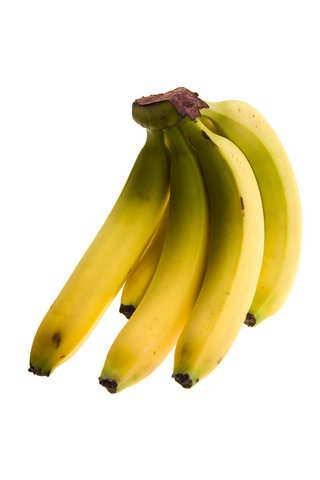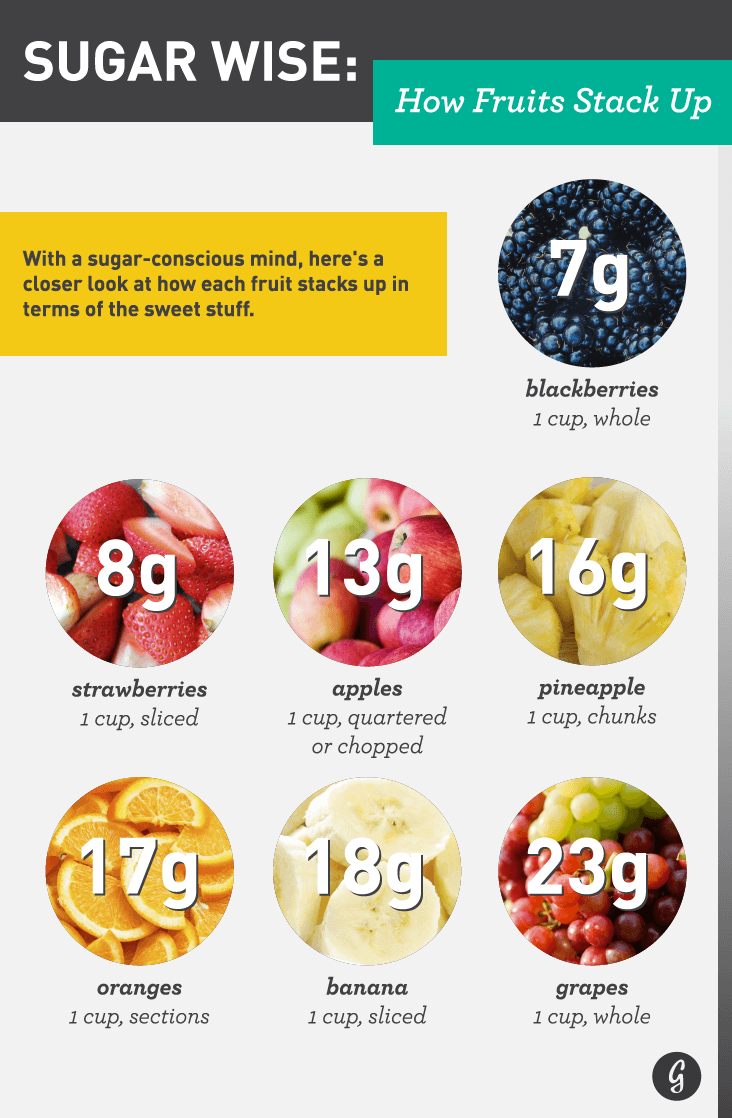5 Fruits with Highest Sugar
Public health agencies and nutritionists recommend eating fruit daily as part of a nutritious diet. The advice has merit, as fruit is a valuable source of antioxidants, vitamins, minerals and dietary fiber, in which many Americans are seriously lacking.
Yet, vegetables are even better for you than fruits, with the primary difference being that (most) vegetables are very low in sugar. Fruits … not so much. There are fruits low in sugar (I recently posted the 5 lowest-sugar fruits, in case you missed it), but the most popular fruits tend to be those that are sweet, and therefore also high in sugar.
This sugar is natural sugar, not added sugar like you’d find in a candy bar or soda. Still, natural or not excess sugar has the potential to cause weight gain, type 2 diabetes, cancer, heart disease, impaired immune response and more. But eating sugar that is part of a piece of whole fruit is far less damaging to your body than added sugar in processed foods.
In a piece of fiber-rich fruit, for instance, the sugar enters your bloodstream slowly because it requires work for your digestive tract to break it free from the fruit’s cells. The slow rate of absorption minimizes its damage.
World Health Organization Sugar Limits Do Not Include Sugar in Whole Fruit
The World Health Organization recommends that no more than 10 percent of your daily calorie intake (and ideally no more than 5 percent) should come from sugar. However, that limit does not include sugars locked in whole foods like fruit (which they call intrinsic sugar).[i]
Most experts agree that limiting your consumption of fruit due to its natural sugar content is not necessary … but there is some research showing that fructose, which is the primary sugar found in fruit, may be linked to abdominal fat, weight gain, adverse effects on metabolism and more.[ii][iii][iv] And, if you’re really serious about limiting your sugar intake, you certainly should take fruit sugars into that mix, particularly if you eat a lot of fruit.
Two cups of bananas, for instance, contain 36 grams of sugar, which is morethan the 30-gram daily limit the American Heart Association recommends for adult women.[v] Again, this is natural sugar contained within the fiber-rich fruit matrix, which is going to be metabolized differently than the same amount of sugar in a bowl of ice cream or a bottle of soda. So it’s likely to be significantly less harmful.
5 Highest Sugar Fruits
If you’re interested in reducing your sugar intake, including from fruits, the following high-sugar fruits should be limited or avoided.[vi]
5. Bananas: 18 grams of sugar per cup
4. Grapes: 23 grams of sugar per cup
3. Mango: 23 grams of sugar per cup
2. Figs: 27 grams of sugar per cup
1. Lychees: 29 grams of sugar per cup
The infographic below, from Greatist,[vii] gives more details about how much sugar is in popular fruits.


No comments:
Post a Comment